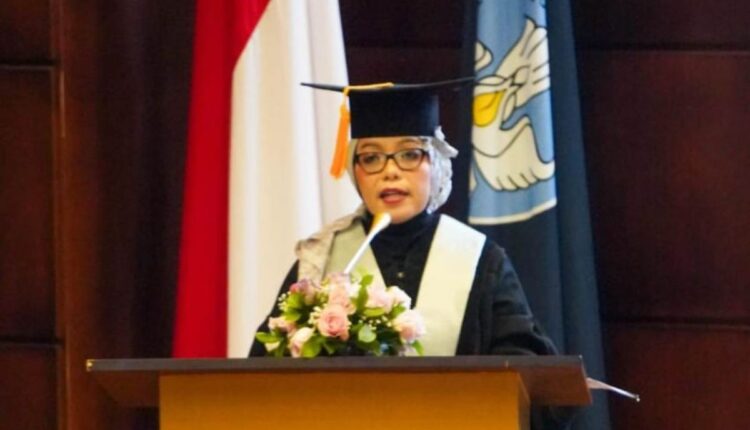FEB UI Professor: Infrastructure Development in the Jokowi Era Supports the National Economy
Jakarta – During a decade of President Joko Widodo’s leadership, infrastructure development has become one of the government’s top priorities. This step is considered not only to strengthen national connectivity, but also to have a significant impact on the economy and public welfare, especially in the Disadvantaged, Frontier, and Outermost (3T) regions.
Professor of the Faculty of Economics and Business, University of Indonesia (FEB UI), Telisa Aulia Falianty, assessed that President Joko Widodo deserves appreciation as the Father of Indonesian Infrastructure. “He is the father of Indonesian infrastructure. Our state budget is around more than IDR 400 – 500 trillion per year allocated for infrastructure development,” said Telisa. He added that the large budget allocation for infrastructure development has created a wide chain impact, ranging from increased connectivity to more efficient food distribution.
Telisa also emphasized that infrastructure development during President Jokowi’s era has made a major contribution to the national economy, especially for areas that have been marginalized. This is in line with the Nawacita vision carried by Jokowi-Ma’ruf Amin, which emphasizes the development of Indonesia from the periphery and strengthening regions within the framework of a unitary state. “This is also what needs to be appreciated from President Joko Widodo’s government. Building the outermost areas certainly has a cost in terms of visibility of economy, but socially the impact is very large in reducing inequality in the 3T areas,” he added.
One of the major achievements in the infrastructure sector during President Jokowi’s administration is the development of air connectivity to the 3T region. Telisa highlighted that over the past decade, Indonesia has succeeded in expanding its network of new airports, rehabilitating, and developing existing airport facilities. “The significance of this air infrastructure development is very much felt, especially in the 3T regions such as Papua and other outermost regions,” he explained. According to Telisa, the development of this air infrastructure not only increases accessibility, but also has an impact on reducing the price of basic necessities in remote areas.
Telisa gave an example of the success of air infrastructure in Papua, where the price of basic necessities was successfully maintained and accessibility to meet the basic needs of the community increased. “The era of President Jokowi has proven successful in maintaining the price of basic necessities, especially in remote areas such as Papua. Better air connectivity makes prices more stable and affordable,” he said.
The positive impact of the development of air infrastructure is not only felt in terms of economy, but also in efforts to reduce development inequality in Indonesia. “Development in the Jokowi era is more inclusive, not only enjoyed by urban communities, but also by those in remote areas of the country,” said Telisa. The inclusiveness of development, according to her, is one of the greatest achievements of the Jokowi administration in equalizing welfare throughout Indonesia.
In addition, Telisa also noted that the opening of air connectivity in the 3T region has made a major contribution to local and central government revenues. With the increasing number of economic opportunities created, regional income has also increased. “Like in Papua, the construction of a new airport in Nabire is one example of how infrastructure can drive local and national economic growth,” he said.
Another achievement revealed by Telisa is the addition of 41 new flight routes and the construction of 64 new airports in remote areas during President Jokowi’s administration. According to him, this figure is real evidence that infrastructure development is not only physical, but also has a long-term impact on community welfare and economic growth.
Overall, the achievements of President Joko Widodo’s government in infrastructure development, especially in the air transportation sector, have received high appreciation from various groups. Better connectivity, real economic impacts, and reduced disparities between regions are results that should be appreciated from the infrastructure development policies rolled out over the past 10 years.
